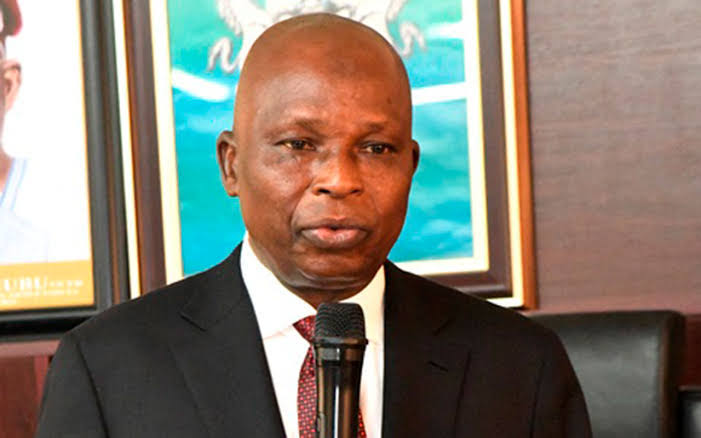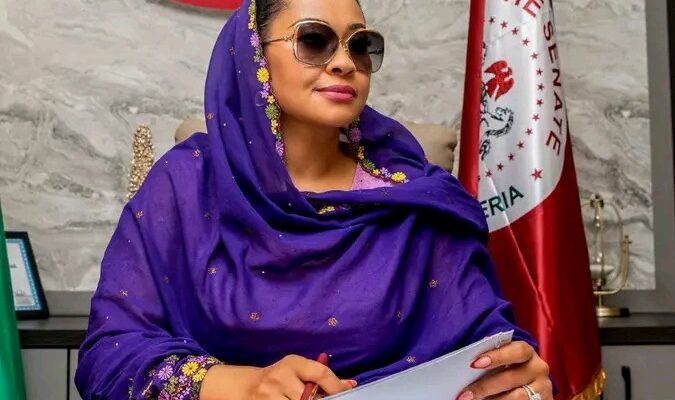News
FG denies seizure of $21m by US court

By Francesca Hangeior
The Federal Government has described as inaccurate reports alleging that a United States
District Court authorized a certain Louis E. Williams to seize $21m from Nigeria’s account with JP Morgan.
Speaking through the Attorney-General of the Federation (AGF) and Minister of Justice, Lateef Fagbemi, the Federal Government said at no time did the US Court make such an order, adding that the court only dismissed Nigeria’s preliminary objection to the complaint’s suit.
The AGF said the ministry launched a defence against the claimant, Williams, and assured Nigerians of a positive outcome.
The statement reads in parts, “we wish to note from the report follows similarly inaccurate publications by Peoples Gazette on 21 August 2023 under the cover: “UK Court authorizes SSS victim Williams Emovbira to seize $21 million from CBN account with JP Morgan in New York.
“None of the media outlets that syndicated the story sought the reaction of the Nigerian government. Indeed, the Ministry challenges these media outlets to publish a copy of the US Court order authorizing the said seizure.
“The Ministry hereby clarifies that at no time did the US District Court authorize the seizure of funds belonging to the Nigerian Government in the custody of JP Morgan. The court only refused Nigeria’s preliminary motion to dismiss the complaint against her on ground of sovereign immunity.
“The implication of the decision rendered on 12 August 2024 is that the case would now proceed to substantive hearing on the merit wherein parties are required to present evidence and legal submissions in support of their case before the court will issue a final decision.
“It is pertinent to state that Nigeria has filed an appeal against the interlocutory decision in issue. Nigeria has launched robust legal defences/challenges in the UK and US courts against Williams’ claims, including by launching proceedings against him for fraud and therefore remains quite confident and optimistic that his attempts to strong arm the Nigerian government will come to naught.” the Federal Government said.
News
Ex-immigration officer arrested for selling arms to bandits in FCT

By Francecsa Hangeior
The Federal Capital Territory Police Command has intercepted a former immigration officer who was attempting to sell sophisticated firearms to bandits operating in the Abuja-Kaduna forests.
The dismissed officer whose name was not disclosed was arrested following an intelligence-led operation by the police.
Speaking to journalists in Abuja on Wednesday, the Officer in Charge of the Anti-Kidnapping Unit, Mustafa Mohammed, said the operation prevented the arms from reaching criminal elements who he said could have made them deadly.
Mohammed said, “Acting on intelligence, the command intercepted these guns from a dismissed immigration officer attempting to sell them to bandits terrorising the Abuja-Kaduna forest. The intelligence was received in time, and the arms were intercepted while he was trying to make the delivery.”
Mohammed said among the recovered weapons was a Scorpion CZ EVO3, an advanced, fully automatic firearm with an inbuilt silencer.
“This is the latest model, the 2022 version of the Scorpion series. It can be used in single, automatic, or burst mode. It is a highly sophisticated weapon, and its magazine can hold between 20 to 30 rounds, depending on the configuration. We also recovered 52 rounds of ammunition which could have posed a severe threat had they fallen into the hands of criminals.”
On his part, the FCT Commissioner of Police, Tunji Disu, said a total of 300 suspects were arrested between January and February 28, 2025.
Disu said, “In its sustained effort to rid the Federal Capital Territory of crime and criminal elements, the FCT Police Command has intensified its operations, carrying out a series of high-impact raids from January 1st to February 28th, 2025.
“These decisive actions, driven by intelligence and executed with tactical precision, have led to the arrest of 300 suspects and the recovery of a significant cache of arms, ammunition, and illicit substances. Total number of armed robbers arrested: 59.
“Total number of kidnappers and informants arrested: 10. Total number of armed robbers neutralized: nine. Total number of kidnappers neutralized: seven. Total number of cultists arrested: 16.”
News
Why Natasha’s sexual harassment petition against Akpabio won’t stand — Senators

By Francesca Hangeior
The sexual harassment petition submitted by Senator Natasha Akpoti-Uduaghan against Senate President Godswill Akpabio has taken a new plot twist after senators disagreed on the grounds through which it was submitted.
Akpoti-Uduaghan formally submitted the petition on Wednesday following the claim of the senate spokesperson, Yemi Adaramodu, that the only petition before the senate is the senator’s disobedience to orders of the red chamber.
This action led to wide public debate in the country, with many of the supporters of the senator representing Kogi Central Senatorial District trooping out en masse to seek justice for the senator and the resignation of Akpabio in the matter.
However, some senators have supported Akpabio while dismissing the petition because it doesn’t follow the order of the Senate, despite the Senate President’s ruling on the hearing of the petition.
Speaking, the senate chief whip, Mohammed Monguno (Borno, APC), while quoting Order 40, rule 7 of the Senate Standing Order, said the issue contained in Senator Natasha’s petition is already in the court of law, and the rules of the senate do not permit deliberation on such matters.
“The matter is in the court of law. Senator Natasha herself has gone to court in respect of this matter, and also the wife of the Senate President has equally gone to court for this matter.
“The Senate, therefore, does not have the jurisdiction to entertain this matter. That the matter should be referred to the ethics and petition committee is not necessary,” he said.
Another senator, Yahaya Abdullahi (Kebbi North Senatorial District, APC) subjected the matter to the Ethics committee to decide the appropriate order and the interpretation of the rules raised by Senator Mungono for clarification.
In his remarks, Senator Opeyemi Bamidele (Ekiti Central District, APC) stressed the senate standing rule’s order 40, sub 4 which notes that no senator bringing in a petition shall be the author of same, adding, “The essence of the rule is to lay petition of behalf of constituents not to be the author.
“Mr President, I sympathise with you, as a man being accused of sexual harassment, but I am not going to comment on that because there will be ample opportunities for the relevant authorities to deal with that but I know that Senator Natasha went to court on the matter then appeared on national TV on the sexual harassment matter and the wife of the Senate President, Mrs Uloma Akpabio went to court and parties have been served.”
Countering her colleagues’ claims, Akpoti-Uduaghan said her harassment petition was not before the court, and that the only matter in the court is that of cyberbullying made by Akpabio’s special assistant on New media, Patrick Udom, who described her “decent outfit” as transparent by depicting that she dresses naked to the chambers.
She further appealed to Akpabio to accept and forward her petition to the Ethics and Privileges Committee for deliberation.
Akpabio had earlier denied allegations of sexual harassment made against him. (https://punchng.com/natasha-akpabio-denies-sexual-harassment-allegations/)
He said, “At no time did I ever harass any woman. I was raised very well by my late single mother, and I have always upheld respect for women. I was even awarded the most gender-friendly governor in Nigeria.”
Akpabio said he had been receiving calls about the matter since February 25 and was aware of the discussions on social media.
He, therefore, urged Nigerians and the media to avoid making conclusions, asking them to wait for the court’s decision.
News
Applications Open for 2025 AIG Public Leaders Programme

As part of its activities to support efficient public service delivery in Nigeria, the Aig-Imoukhuede Foundation has announced applications for the 2025 AIG Public Leaders Programme (AIG PLP), a fully funded leadership development initiative for senior public sector professionals across Africa.
This programme is in partnership with the Blavatnik School of Government at the University of Oxford, and aims to equip participants with advanced skills to drive transformative governance and address systemic challenges.
The AIG PLP offers an immersive executive education experience, blending rigorous academic study, interactive workshops, and peer-to-peer learning to enhance competencies critical for effective public leadership. A distinctive feature of the programme is the reform project, where participants design and implement impactful reforms within their respective Ministries, Departments, and Agencies (MDAs).
Alumni have successfully led initiatives such as developing standardized training manuals for Air Traffic Safety Electronics Personnel at the Nigerian Airspace Management Agency (NAMA) and automating dossier review processes at the National Agency for Food and Drug Administration and Control (NAFDAC), resolving longstanding challenges in regulatory decisions. Additionally, patient waiting times at Isheri Olofin Primary Healthcare Centre in Lagos were reduced from 82 minutes to 31 minutes, surpassing the target reduction of over 50%.
Chioma Njoku, Director of Programmes at the Aig-Imoukhuede Foundation, emphasized the programme’s impact, stating, “The AIG PLP is more than a training programme—it’s a catalyst for systemic change. We empower public sector leaders with cutting-edge tools and frameworks to tackle Africa’s most pressing governance challenges. From reducing bureaucratic bottlenecks to advancing digital transformation, our alumni return to their roles equipped to lead with integrity, innovation, and measurable impact.”
Eligibility Criteria:
- Be a citizen of any African country, actively working in the public sector.
- Have a minimum of seven years of work experience.
- Be at Grade Level 12 or above.
- Be between 35 and 50 years old.
Interested candidates can apply online by visiting the Aig-Imoukhuede Foundation’s official website. The application deadline is 1st May 2025.
-

 News23 hours ago
News23 hours agoInsecurity ! Kidnappers k!ll ex-Immigration CG in Abuja
-

 News24 hours ago
News24 hours agoPDP’s failure, Tinubu’s reforms have paved way for APC in Delta, says Omo-Agege
-

 News19 hours ago
News19 hours agoPolice clarifies on death of ex-NIS boss, says his body was found in hotel
-

 News22 hours ago
News22 hours agoPSC endorses appointment of six DIGs, elevates one CP to AIG, others
-

 News23 hours ago
News23 hours ago10th House Poised to Drive Gender Parity in Nigeria – Speaker Abbas
-

 News22 hours ago
News22 hours agoAlleged Breach Of Act: FCCPC Set To Arraign MTN CEO, Others
-

 Sports11 hours ago
Sports11 hours agoWCQ: Ahmed Musa returns as Super Eagles name team
-

 Economy11 hours ago
Economy11 hours agoCBN appoints 16 new directors in major shake-up







